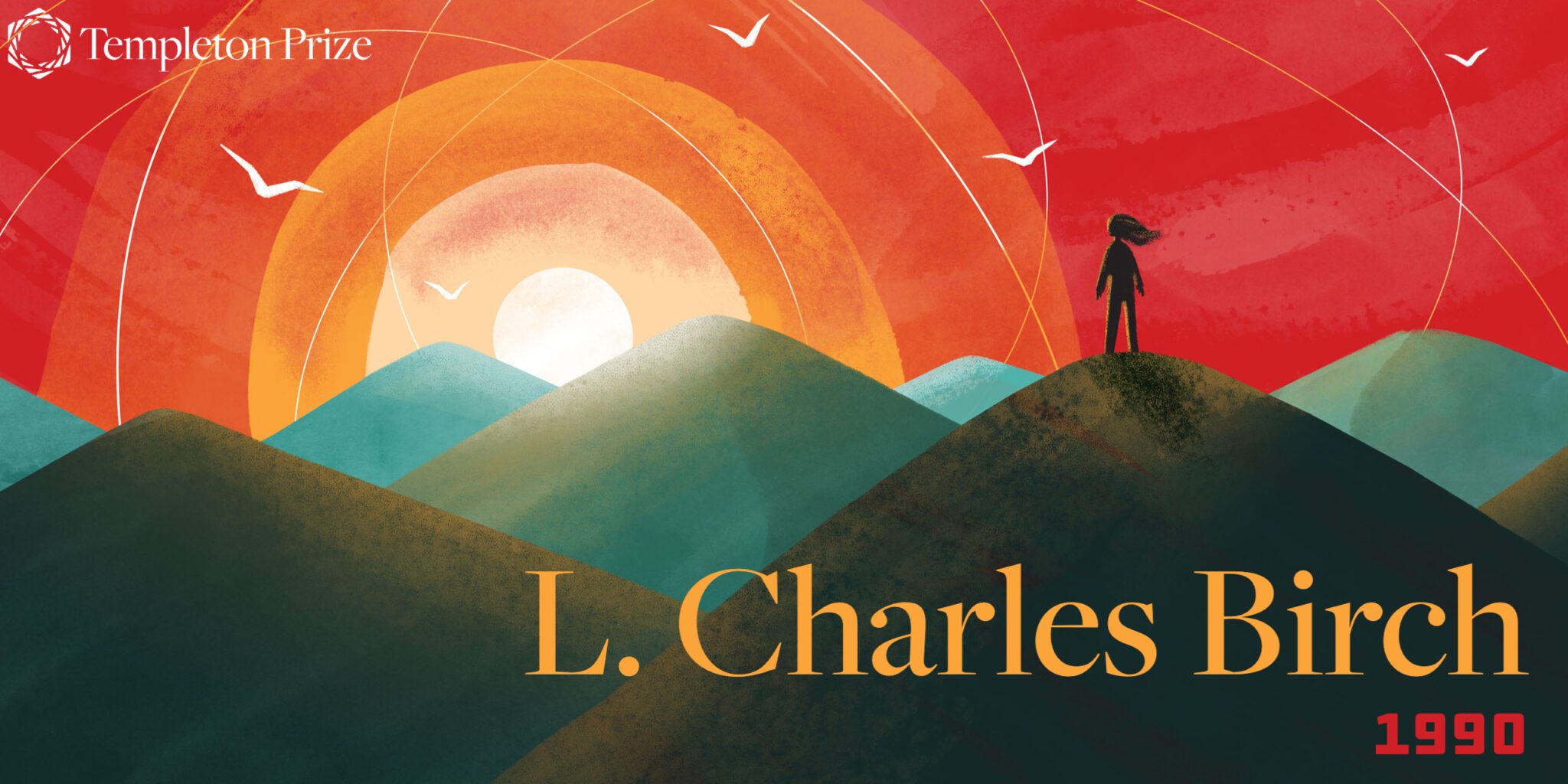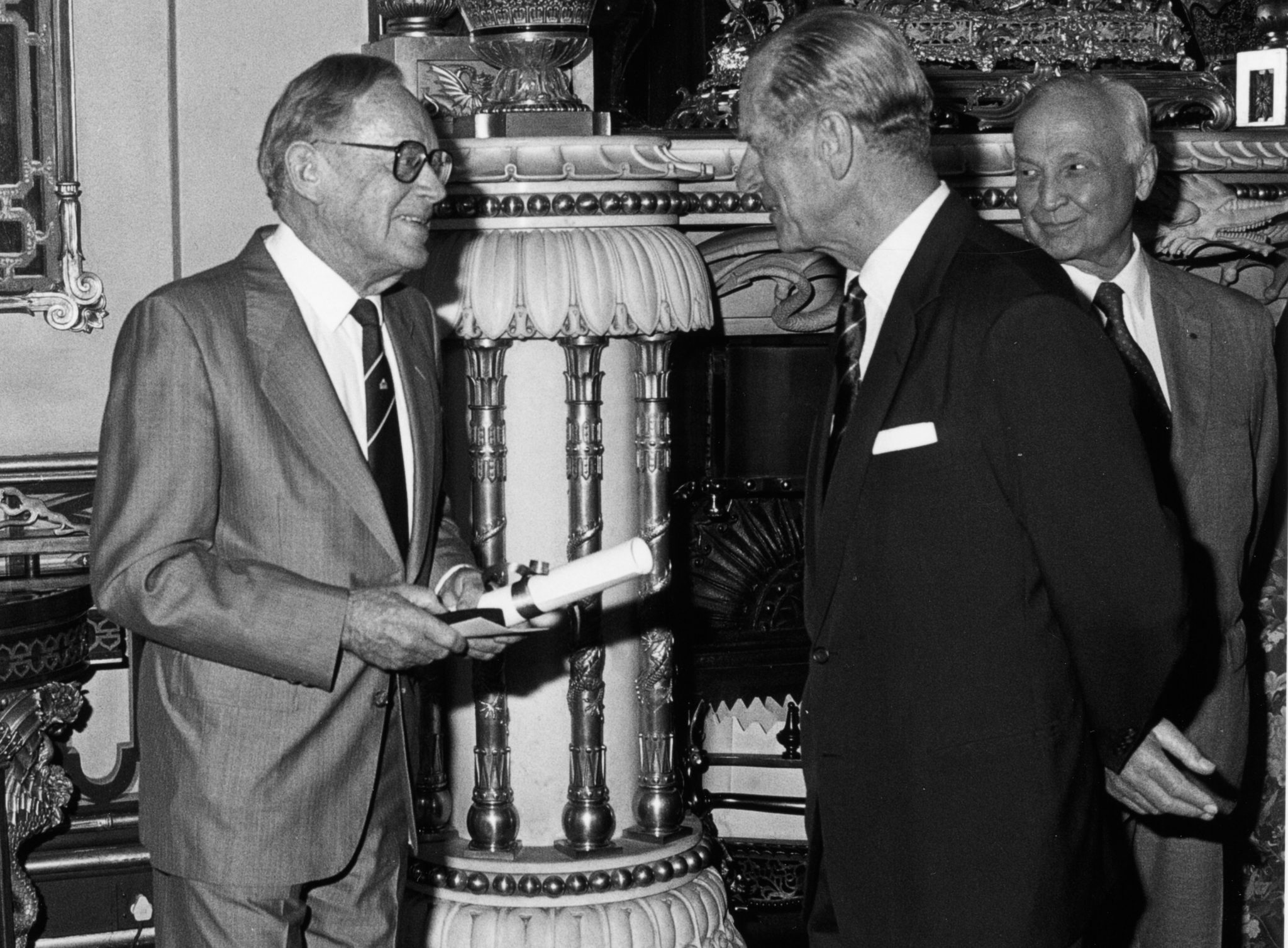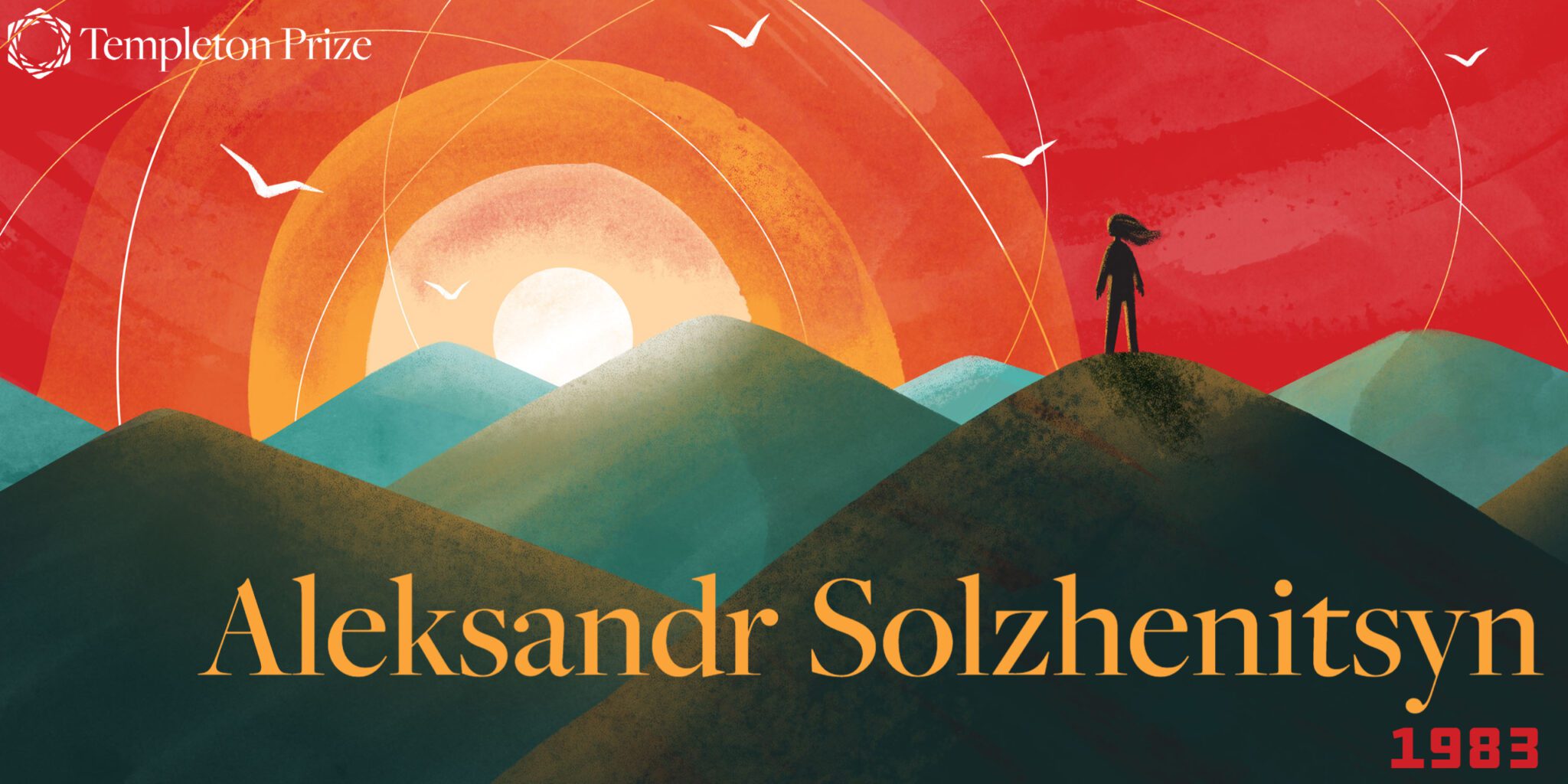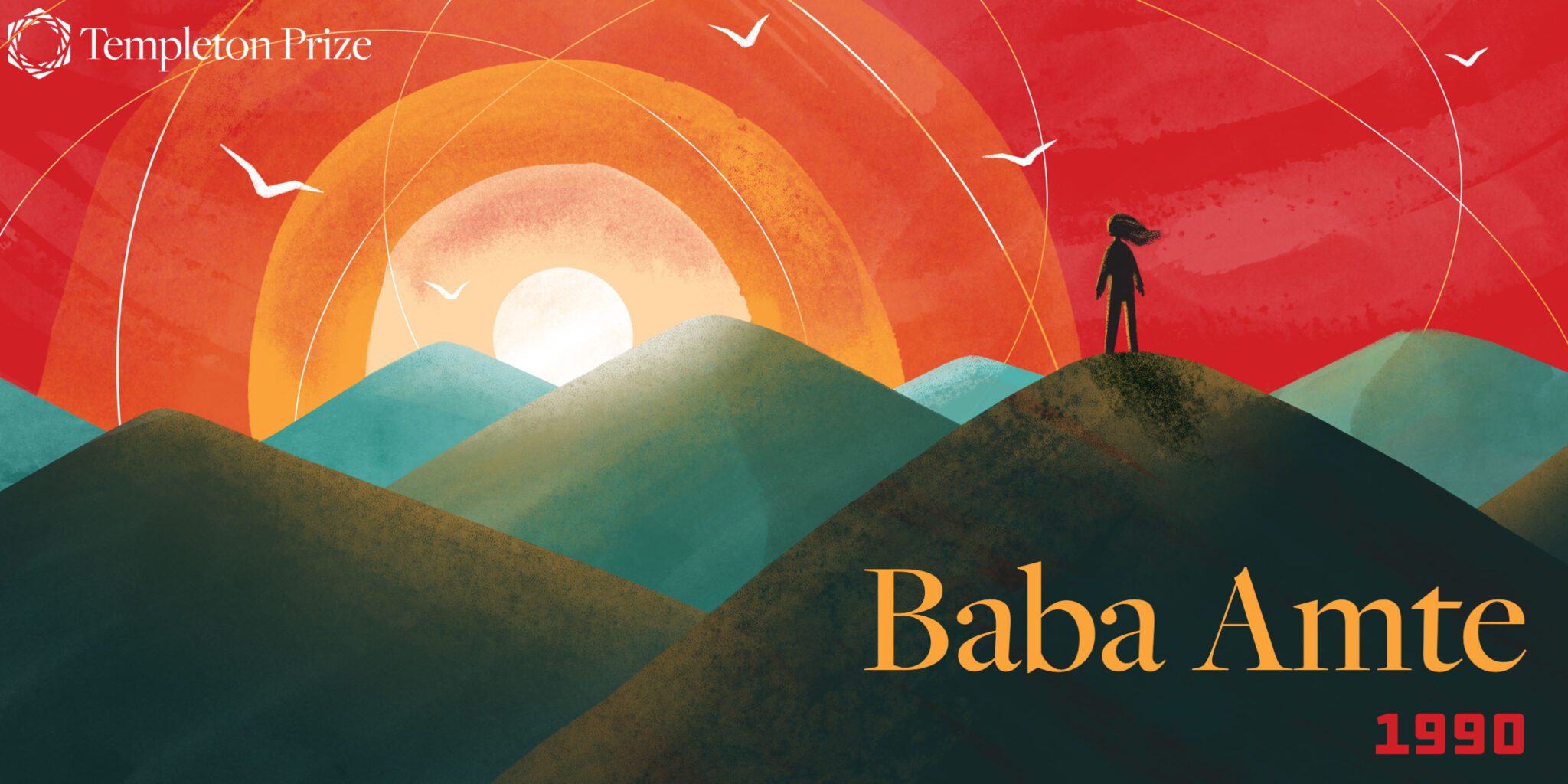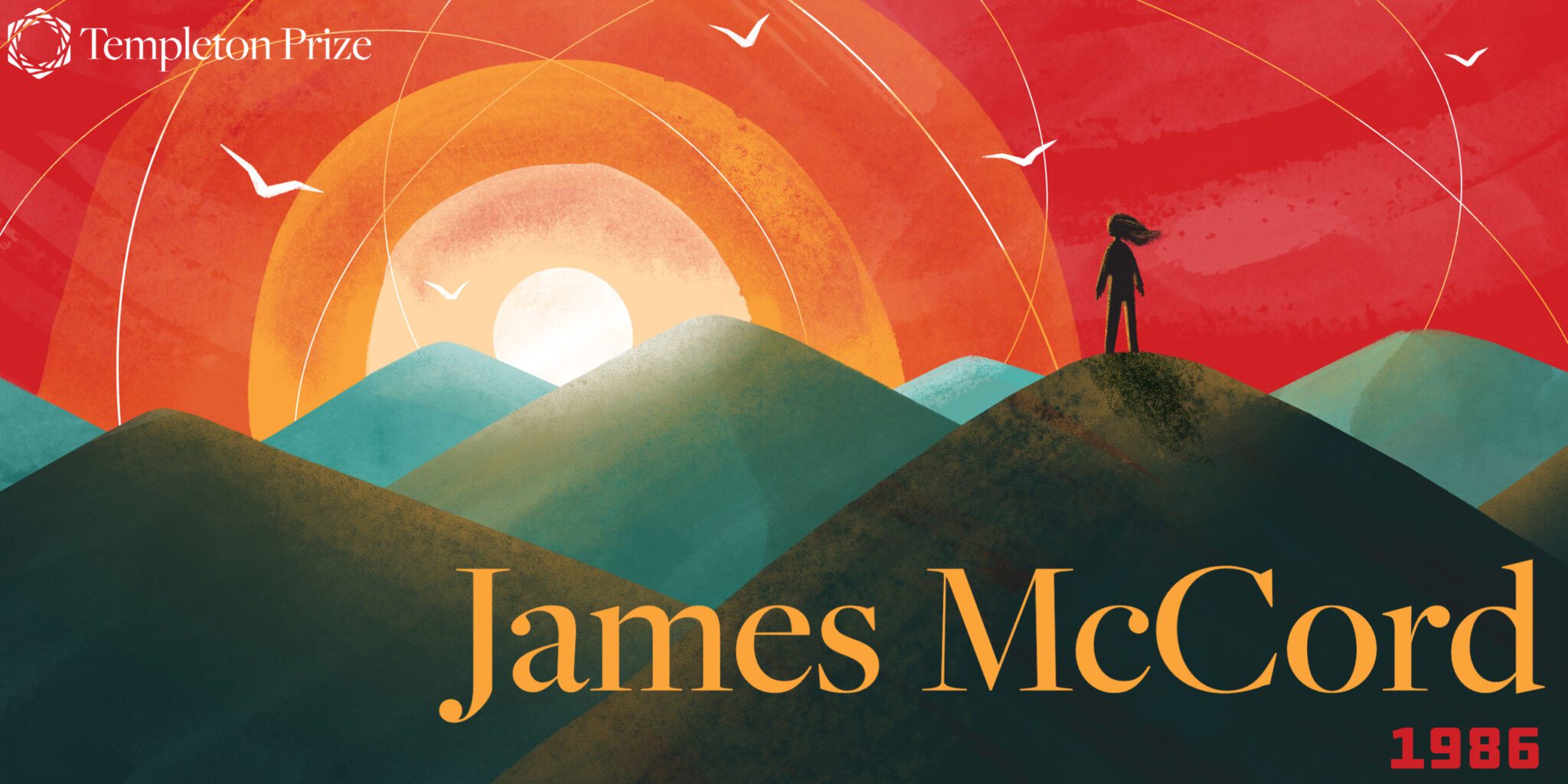In 1973, the first Templeton Prize was given to Mother Teresa. In 2023, we celebrate the 50th anniversary of this award. Over the next 52 weeks, we will highlight each of our laureates and reflect on their impact on the world. From humanitarians and saints to philosophers, theoretical physicists, and one king, the Templeton Prize has honored extraordinary people. Together, they have pushed the boundaries of our understanding of the deepest questions of the universe and humankind’s place and purpose within it, making this (we humbly think) the world’s most interesting prize.
Born the son of a Methodist minister in Australia in 1918, L. Charles Birch dedicated his life to unraveling the mysteries of genetics and biology. Over the course of his decades-long career, Birch served as a Research Fellow at the University of Chicago, Oxford, Columbia University, and the University of Minnesota, and as visiting professor of Genetics at the University of California at Berkeley. He joined the University of Sydney in the 1960s, where he began as a Professor of Zoology and later became a Professor of Biology. He contributed significantly to our understanding of the effect of weather disturbances on animals.
Throughout his career, Birch engaged in new and adventurous reflections on the relationship between science and faith. He saw modern discoveries in the sciences as a means of deepening one’s understanding of God as designer and creator of the universe. As he stated in one of his early books, “The most critical time in my own search or understanding was as a young research student dissatisfied with the answers of what called itself orthodox Christianity and excited about science.”
L. Charles Birch was awarded the Templeton Prize in 1990 for his exceptional contributions to the field of genetics and his thoughtful reflections on the interplay between science and faith. He was recognized by contemporaries as a great lay theologian, and served as vice chairman of the World Council of Churches’ Church and Science Committee. In this role, he was the first natural scientist to give a major address at a World Council Assembly – delivering a paper on “Creation, Technology and Human Survival” in 1975.
-

1990 Templeton Prize Laureate L. Charles Birch with Prince Philip, Duke of Edinburgh
L. Charles Birch received the Templeton Prize jointly with lawyer Baba Amte at Guildhall in London. Birch delivered an acceptance speech, and Baba Amte’s son, Dr. Vikas Amte, delivered an acceptance speech on his father’s behalf. The audience was also addressed by The Duke Of Abercorn.
“What pleases me most about the Templeton Prize is that it recognizes there is such a thing as progress in religion – that a living vital religion cannot remain static as the world around it changes dramatically day to day. To be vital, religion, like science, has to grow. The truth may have been delivered once and for all to the saints. It is not delivered that way to us. Christian doctrines are good sign posts, but they are bad hitching posts. They are good starting points for an adventure. The new adventures of the Christian religion today are first along the frontiers of modern science, second in relation to other religions and third in relation to the ecological and political problems of our time. Ours is a time of three momentous tensions, between war and peace, between social injustice and social justice and between industrialization and ecological sustainability. Our deeper understanding of both science and religion is a critical ingredient in any creative approach to these issues. Those who say that science and religion do not mix understand neither.”
–L. Charles Birch
“It was not surprising that in the search for imaginative minds on the frontiers of science and faith, the World Council of Churches should have selected him to help oversee its programme of ecumenical study on the future of man and society in a world of science- based technology; and that this should have led to his being chosen as the first natural scientist to address a WCC Assembly (in Nairobi in 1975) on this theme. Professor Birch’s contribution to Progress in Religion may be summarized under three headings:
- The development of a new understanding of the nature and role of God for a scientific age.
- The reconciliation of the biological and the religious understanding of creation.
- The concern to link social justice with the new ecological awareness of humanity’s dependence on nature.”
–Duke of Abercorn
Still Curious?
Learn more about L. Charles Birch.
